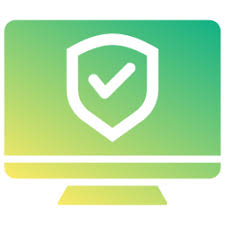Online Safety
The internet is essential in 21st century life for education, business and social interaction. As children move up through the school their access to various types of technology increases and their exploration and curiosity increases too.
The positives of the digital world overwhelmingly outweigh the negatives, but children, schools and parents all need to be aware of various online risks and how we can ensure that children are safe online.
Our top tips
- Always Speak to a grown up before using the internet who can advise you on what to do.
- Don’t post any personal information online – like your address, email address or mobile number.
- Think carefully before posting pictures or videos of yourself.
- Never give out your passwords.
- Don’t befriend people you don’t know.
- Don’t meet up with people you’ve met online. Speak to your parent or carer about people suggesting you do.
- Remember that not everyone online is who they say they are.
- Think carefully about what you say before you post something online
- Respect other people’s views, even if you don’t agree with someone else’s views doesn’t mean you need to be rude.
- If you see something online that makes you feel uncomfortable, unsafe or worried: leave the website, turn off your computer and tell a trusted adult immediately.
- Remember the SMART rules.
- You can also call ‘Childline’ on: 08001111 to talk to someone who can help.
What is Online Safety?
Online Safety is about staying safe whilst accessing various devices which usually include the internet, including social networking sites, online game sites, using game consoles that allow access to chat facilities and mobile technology such as mobile phones and tablet devices. Online safety includes avoiding viruses, identifying accurate information and not giving personal information to untrustworthy sources.
Why is Online Safety important?
What can I do as a parent to keep my child safe?
What we do at school to keep your child safe?
Teacher and staff responsibilities
Report Abuse
CEOP help children stay safe online. If someone acted inappropriately towards you online or young person you know, it may be inappropriate chat, being asked to do some thing that makes you feel uncomfortable or someone being insistent on meeting up.
thing that makes you feel uncomfortable or someone being insistent on meeting up.
You can report it by clicking on their logo here:
Useful Links
Summerfield Parent Guides
-
5 Internet Safety Tips For Kids Sharing photos, posting comments, playing video games -- these are just a few of the ways that kids interact online, but sometimes there are risks. Learn five ways to keep your kids safe on the internet.
Parents E-Safey Workshop PowerPoint
Setting up Google Safe Search
The following links and articles contain useful information to support you in keeping your child(ren) safe online.
Thinkuknow Primary Parents Helpsheet
A Parent's Guide to Personal Information From online gaming to social media apps - if your child enjoys the internet it’s important you know how to protect their personal information and support them to make safe choices about what they share about themselves online
Facebook Privacy Settings Guide
Cyber Security - What Parents and Carer need to know. Your children are probably the go-to IT advisor in the family, but security may not be their top priority. We’ve teamed up with The National Cyber Security Centre to give you some advice about how you and your family can work together to make some small changes to the security of your online accounts and devices to better protect yourselves from online scams.
Translation Available
If you require any of the documents embedded or attached to this page in another language please let us know by e-mail to enquiry@sumfield.bham.sch.uk or phoning 0121 675 2355



